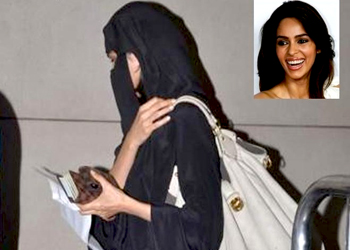Mumbai, Sep 27: Mallika Sherawat may have made stunning fashion statements during her many media appearances in India and abroad but guess what.

Mallika Sherawat, who emerged as a sex-symbol after starring in Murder with Emraan Hashmi, said that she is quite religious and spiritual at heart which is quite a far cry from her on-screen avatar.
“I am religious and spiritual. One doesn’t have to go to temples daily to be religious. I read Hanuman Chalisa daily in the morning,” said Mallika. Mallika Sherawat, whose last film was Dirty Politics, also revealed the real reason behind her not being a part of Aamir Khan’s Dangal.
“I auditioned for Dangal and they (makers) liked my audition too. But the role I had auditioned for was that of a mother of four daughters. The team told me that try whatever they could, they were not able to see me as a mother of four daughters. That’s the real reason why I was not cast.”





Comments
I blog often and I seriously appreciate your information.
Your article has truly peaked my interest. I'm going
to bookmark your site and keep checking for new details about once per week.
I opted in for your RSS feed too.
Here is my blog hanuman mantra: http://www.chinapeir.com/xiaoer/member.asp?action=view&memName=VernaPer…
Add new comment